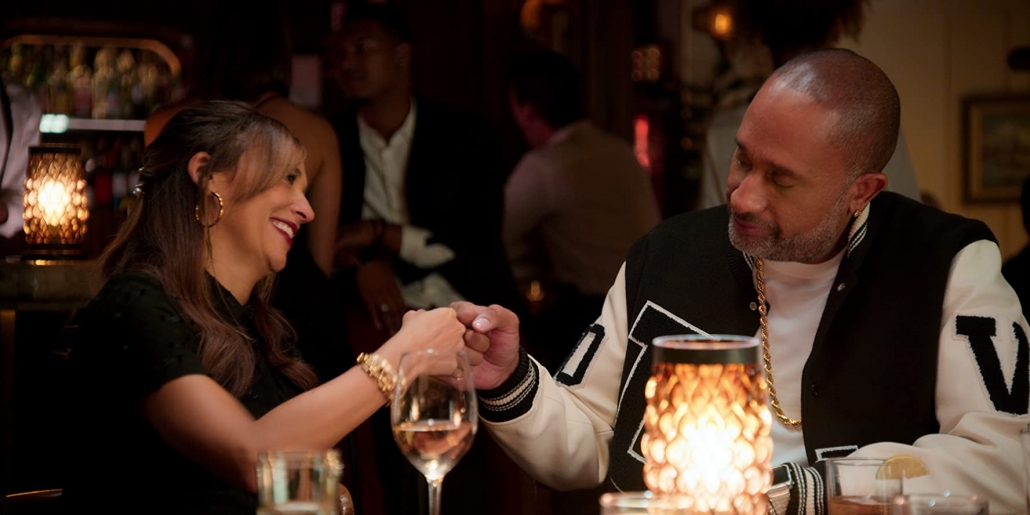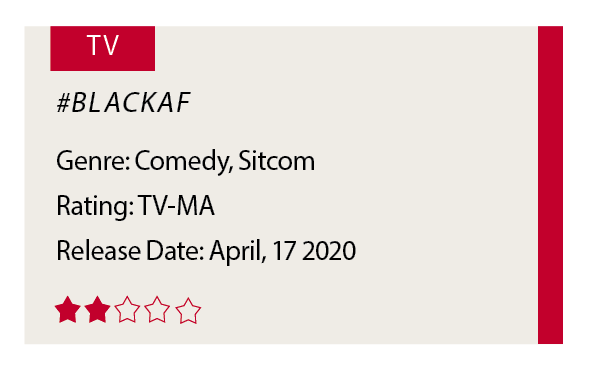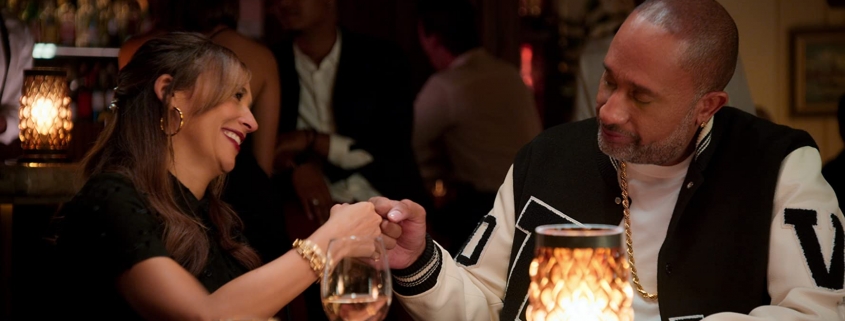REVIEW: Kenya Barris’ Netflix debut is a shallow, stale expression of love

Netflix’s new family mockumentary “#blackAF” follows a fictionalized version of “Black-ish” creator Kenya Barris and his family’s experience as they navigate their Black identity in a society that is often against them. The show, released Friday, is framed as a documentary, made as part of Barris’ daughter Drea’s (Iman Benson) application to New York University’s film school. Barris plays himself and is joined by Rashida Jones as his wife Joya. Each episode tackles a different racial issue, but often misses the mark.
“#blackAF” will inevitably be compared to Barris’ ABC sitcom “Black-ish” for good reason. Both series are centered around a version of his own family and incorporate a narcissistic and hardworking father, a mother vocal about her advanced degree, a popular oldest daughter, a soft and nerdy younger son and a mischievous pair of middle-children.
The challenge of portraying marginalized families on television lies in the difficulty of balancing the universal with the specific — it is impossible to fit every Black experience. “#blackAF” acknowledges this challenge: Barris’ character struggles to find a universal portrayal of the Black experience. Yet it’s hard to justify why the show’s title presents itself as such.
Barris’ experience as a multi-millionaire Hollywood writer is far from universal. There is no comment on how wealth insulates Barris and his family from the hardships of the average Black family. In a time when celebratory portrayals of exorbitant wealth have fallen out of fashion, it doesn’t make sense that the privilege of wealth is rarely acknowledged beyond “first world problems.”
It would have been more interesting to see the unique problems Barris faces as one of the biggest Black names in a predominantly white Hollywood, but instead “#blackAF” spends much of its time failing to convince the audience that Barris is still just like them — and not at all insulated. “It would have been interesting if …” is a good summation of how the show chooses to handle many of its issues.
Throughout the series, Barris does attempt to address critique, in one episode poking fun about how “Black-ish” was groundbreaking for “55-year-old white women”, but he makes little attempt to actually remedy more substantial issues raised by Black critics.
One specific critique lies in Barris’ casting of mostly lighter-skinned Black people. In response to these accusations of colorism, Barris wrote in a since-deleted tweet, “I’m also not gonna make up a fake family that genetically makes no sense just for the sake of trying to fill quotas.” Another critique of Barris’ shows is that they make more of an effort to explain the Black experience rather than live it; in other words, the show is directed toward white people.
It is difficult to tell who “#blackAF” is for. It does spend a lot of time explaining Black history and microaggressions that wouldn’t be news to Black audiences. The Blackness on display frequently comes off as performative and obtrusive overcompensation. These segments often feel like they mainly exist as cliffnotes for white audiences who might be unfamiliar with history and need to be taught about their own failures to combat racism.
White audiences, however, will have trouble identifying their own racial faux pas in the show’s white characters. Most are total caricatures, over the top and easily dismissed with a simple “Oh, well I’m not that bad.”
Many of the issues raised feel shallow as well, such as one instance where Joya spends an entire episode afraid that her kids aren’t Black enough because they don’t know how to dance.
“Black-ish” often relied on the acting chops and charisma of Anthony Anderson to bring out the fun of its flawed lead character. While certainly a talented writer, Barris lacks the magnetism and comedic talent needed to elevate his mostly flat performance. Seasoned comic actress Jones brings plenty of life to the character Joya, and it’s clear she’s having a good time. Unlike Barris, she’s fun to watch.
For the most part, though, the characters are mean and hard to get behind. There’s a lack of the clear, unconditional love that typically anchors family shows, and it’s not questioned until the last few episodes — long after viewers may have decided to check out. This is unfortunate, because “#blackAF” does begin to hit somewhat of a stride in the latter half of the season, as Barris displays a rare vulnerability in exploring the challenges and failures of both his career and marriage. It’s a shame that it takes so long to get there.
The show’s mockumentary format often lends itself to entertaining comedic moments and interesting insight. But ultimately, “#blackAF” fails to take full advantage of this format — one that offers a greater opportunity for self-reflection and awareness than typically afforded by sitcoms. The narration at times feels handholdy and Disney channel-esque, not trusting its audience to find the message that has been laid out for them over the past 30 minutes.
In some shining moments, it becomes clear that Barris has a genuine love for his community. “#blackAF” is another attempt to allow Black families to find themselves on screen. It’s just a shame that this exact portrayal has been done before — by its same creator — and rarely attempts to differentiate itself.
In attempts to express this love of Blackness, “#blackAF” often overdoes it, coming across as performative and unaware, and reducing such a varied experience into generalizations and a few clunkily-inserted uses of African American Vernacular English. While not inherently destructive, “#blackAF” feels late to the conversation, addressing topics that have been tackled time and time again, offering no unique perspective and struggling to justify its existence in today’s TV landscape.


